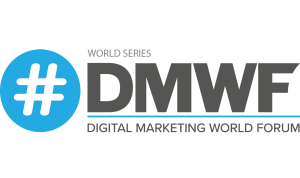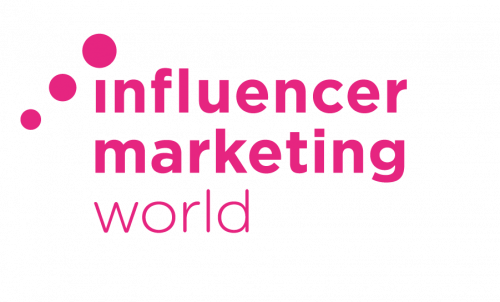Share

Coca-Cola was named the world’s biggest plastic polluter in 2022, followed closely by rival PepsiCo in second place. In this new arena for the cola wars, The Coca-Cola Company had cleared first place for the past five years running, with PepsiCo coming second over the same period (with the exception of 2019, when it came third).
These results came from an audit by Break Free From Plastic. Every year since 2018, this alliance of global organisations and individuals has analysed ocean rubbish from upwards of 40 countries and territories to identify which brands’ products are washing up the most.
Around the same time Break Free From Plastic published its 2022 audit, Coca-Cola was named as the sponsor for COP27. Climate activists were quick to oppose the sponsorship, labelling the brand’s move blatant “greenwashing”.
The soft drink industry clearly has a plastic problem. While The Coca-Cola Company and PepsiCo produce far more than just cola beverages these days, the former is responsible for 100 billion throwaway plastic bottles each year, according to another investigation from the BBC.
Disrupting the plastic problem in the soft drinks industry
When this realisation dawned on Didi Lo, who had been producing health foods and beverages under his company Soulfresh since 2003, and later Lo Bros kombucha in 2015, he decided addressing a health crisis was only half the impact he could be making.
“It was just so clear that unless we delivered a product that delivers at both a product level and actually at a packaging and a holistic level, we were not doing enough,” Lo tells Marketing.
Enter Seven Clean Seas (SCS). Through sustainable projects and solutions, SCS removes plastic from coastlines and rivers in ecologically significant locations. It partners with other companies to help them “offset” their contribution to plastic waste and also offers consulting to reduce their clients’ plastic footprint across supply chains.

Lo decided to partner with SCS to address soft drink’s plastic problem with the launch of a new product under the Lo Bros brand called Not Soda.
This product, packaged in aluminium, had a double mission: offer a zero-sugar soft drink alternative, and, for every can sold, remove the equivalent weight of two plastic bottles from the ocean with the help of Seven Clean Seas.
Not Soda launched in September and sales have so far funded the removal of the equivalent of 600,000 PET bottles.
“Holistically, we think about this net-positive impact, that every unit that we sell that someone drinks has to, on a net basis, do more good than harm,” Lo says.
The World Wide Fund for Nature (WWF) actually discourages companies from using plastic crediting schemes to make claims of “plastic neutrality”.
“By simply purchasing plastic credits, companies could make claims such as ‘plastic neutral’ while still polluting from their own supply chain and operating under business-as-usual conditions,” WWF says in its official position on the practice.
“Responsible companies need comprehensive strategies to address their entire plastic footprint.”
So companies should not pursue plastic crediting activities as a singular strategy without also making changes to their own operations or products, says WWF.
Any packaged products “far from perfect”
“While aluminium is absolutely a better solution, it is, in itself, not a perfect solution,” acknowledges Lo.
“When we had a look at the whole lifecycle of everything we’re doing, we could see that there is still plastic. There’s plastic wrappers around pallets, there’s some plastic that gets used for some of the ingredient inputs.”
For Not Soda, Lo Bros conducted its own plastic audit with another group called The Plastics Collective. Armed with the results of this audit, Lo Bros is looking for other projects to offset its plastic, as well as ways to reduce plastic in its production process.
To go one step further to encourage responsible consumption, Lo Bros is also trying to get the consumers and retailers “as close to” the work SCS are doing.
“We’re doing things like flying the buyers out to the collections sites so they can really see what’s going on and get an understanding firsthand,” says Lo.
Greenwashing
SCS co-founder Tom Peacock-Nazil says the “days are numbered” for organisations looking to greenwash company image by partnering with SCS or other similar organisations.
“If they ever call us then they’re wasting their time,” he says.
“In terms of greenwashing in the soft drinks industry and the wider industry of consumer goods in general, I’m sad to say it’s prolific.
“There definitely is a rising tide of these organisations getting called out and being held accountable. I think one of the challenges we all face as people that want to see this market grow ethically is that consumers aren’t experts and so they don’t necessarily ask the questions that they would need to ask to understand whether this is greenwashing or not.
“There’s a percentage of them, but that percentage is powerful and that’s what we need to nurture.”
Lo agrees consumers have a much more discerning eye for greenwashing attempts by brands than in previous decades.
“I do think, increasingly, people can just smell bullshit. Increasingly, what we’re seeing is this sort of push back against mainstream brands, almost as an afterthought, trying to do something good.”
He doesn’t include Not Soda in that category.
“I think increasingly, the more brands that do what Not Soda is doing and what Who Gives a Crap and others are doing, the clearer it becomes the issues around purpose-washing. And it almost highlights how insignificant or inadequate what they’re doing is.”








